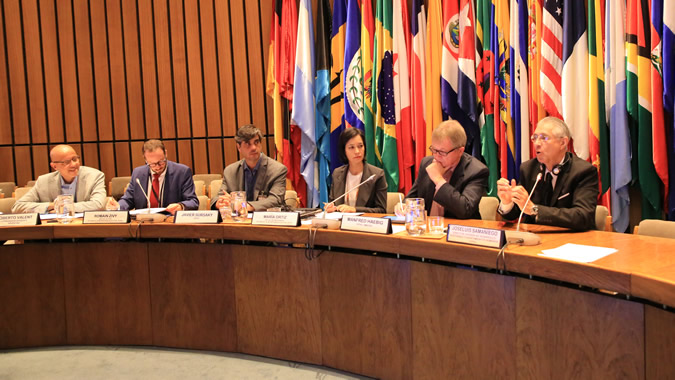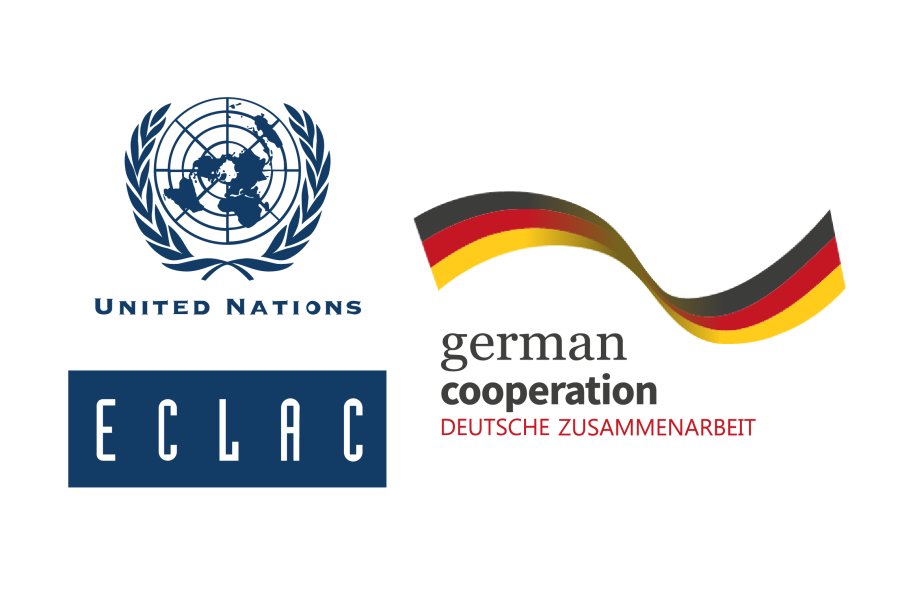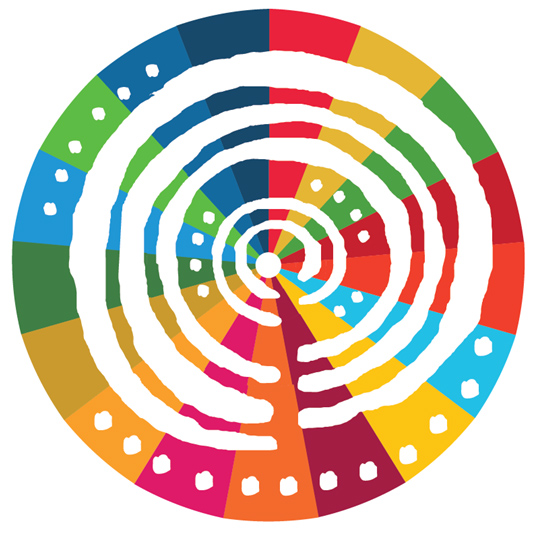ECLAC organized a regional workshop for countries that will present their Voluntary National Review in 2020
The meeting was held ahead of the fourth meeting of the Forum of the Countries of Latin America and the Caribbean on Sustainable Development, which will take place from March 28 to 31 in Havana, Cuba.

The Economic Commission for Latin America and the Caribbean (ECLAC) organized a workshop at its headquarters in Santiago, Chile on February 3 and 4, 2020, with representatives of the countries of Latin America and the Caribbean that will present their Voluntary National Review (VNR) on the implementation of the 2030 Agenda at the High-level Political Forum on Sustainable Development (HLPF) in New York in July 2020.
The workshop, organized with the support of the German cooperation, was held ahead of the fourth meeting of the Forum of the Countries of Latin America and the Caribbean on Sustainable Development, which will take place from March 28 to 31 in Havana, Cuba.
The main objective of the meeting was to promote exchange and learning between peers, thus contributing to the strengthening of countries' capacities to deal with the opportunities and challenges of the VNR process. This goes beyond the preparation of the VNR, taking a strategic perspective of a second generation VNR into account, which focuses on the appropriation and implementation of the 2030 Agenda at the national level.
During the workshop several critical aspects were addressed, such as the identification of national and sub-national priorities and gaps; the statistical and data capacities for the measurement of the Sustainable Development Goals (SDGs) oriented towards evidence-based decision-making; the integration of the SDGs into planning and budgeting schemes; the evaluation of the financing architecture for the SDGs; multi-actor participation and commitment, among others.
The meeting was attended by government representatives from 10 of the 11 countries that will present their VNR in 2020 (Argentina, Barbados, Bolivia, Belize, Costa Rica, Ecuador, Honduras, Panama, Saint Vincent and the Grenadines, and Trinidad and Tobago), together with the Resident Coordinators of Argentina, Chile, Costa Rica and Peru, as well as representatives of the Resident Coordinator Offices of the region. Likewise, representatives of selected countries, that already presented their VNR in previous years, were invited, who shared their experiences and lessons learned from the first VNR presentation cycle between 2016 and 2019.
Experts from ECLAC also participated in the sessions of planning, financing for development, data and statistics, as well as representatives of the private sector and civil society.
During the event, the Resident Coordinators provided an insight into their role and experience in supporting countries to deliver on the 2030 Agenda and the SDGs, examining lessons learned as well as links between the VNR processes; regional, national and sub-national strategies; and available policies, tools and opportunities, with particular emphasis on the contributions of the United Nations development system, as identified via strategic instruments of the program cycle.
The workshop identified lessons learned and concrete recommendations to address sustainable development challenges for the beginning of the Decade of Action announced by UN Secretary-General António Guterres, which requires accelerating sustainable solutions to achieve the SDGs by 2030, addressing critical challenges, such as reducing poverty and inequality, achieving gender equality, fighting climate change and closing financial gaps.
Type
Country(ies)
- Latin America and the Caribbean

